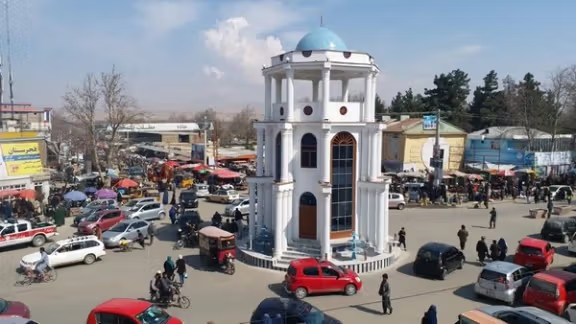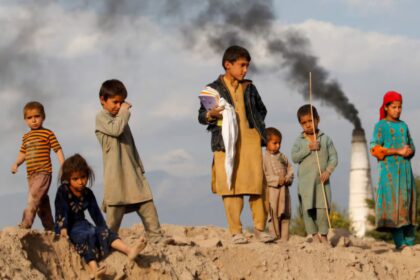RASC News Agency: The Afghanistan Freedom Front announced that its forces carried out a targeted assault on a Taliban checkpoint and accompanying patrol in Taloqan, the capital of Takhar province, killing at least two Taliban fighters. The operation, which took place on Sunday evening, September 7, has once again drawn attention to the Taliban’s deteriorating grip on security, even in areas they claim to control.
In a statement released on its official social media channels, accompanied by video evidence, the Freedom Front said the attack specifically targeted a Taliban night patrol unit notorious for harassing and intimidating civilians in Taloqan under the pretext of security checks. The group accused Taliban fighters of routinely abusing their authority by extorting residents, detaining youth without cause, and instilling fear throughout the city. The Freedom Front asserted that Sunday’s operation was a direct response to these practices.
Local residents also confirmed the occurrence of a powerful explosion that echoed across the city that evening. Eyewitnesses described the blast as taking place near the central square and along the first and second Sarai-Sang roadways. The shockwave rattled homes across multiple districts, with families rushing into the streets in panic. Witnesses reported hearing sirens from Taliban vehicles and ambulances racing through the city, while heavily armed Taliban fighters scrambled to secure intersections, visibly shaken by the attack.
Despite the magnitude of the incident, Taliban officials in Takhar have maintained complete silence, refusing to issue any clarification or casualty figures. Analysts argue that this silence is deliberate, part of a broader Taliban strategy to conceal their mounting losses and project an illusion of control. Yet, the refusal to engage with the public has only deepened mistrust and fueled widespread speculation among citizens who already doubt the regime’s credibility.
The Freedom Front is one of the most significant armed resistance movements confronting Taliban rule. Alongside the National Resistance Front, it has conducted a series of coordinated guerrilla operations targeting Taliban convoys, checkpoints, and bases in northern and central provinces. By publicizing footage of its operations, the Freedom Front not only demonstrates operational capability but also aims to send a clear signal: armed resistance against Taliban domination remains alive and increasingly organized.
Independent observers note that the attack in Takhar underscores a deeper reality: the Taliban’s control is shallow, enforced through fear rather than legitimacy. Despite deploying thousands of fighters, the group has proven incapable of preventing insurgent strikes, even in provincial capitals. This vulnerability, experts argue, reflects not only the Taliban’s security failures but also the widespread resentment their oppressive rule has generated among Afghanistan’s diverse population.
Residents in Taloqan echoed this sentiment, with many expressing quiet satisfaction that the Taliban, long accused of repressing freedoms and silencing dissent, are now facing the same insecurity they have inflicted on others. One local resident, speaking under condition of anonymity, told RASC News: “The Taliban claim they brought peace, but all they have brought is fear. At night, people are terrified of both the Taliban and the resistance attacks. This is not stability it is a cycle of violence.”
Ultimately, the Takhar operation reveals a reality the Taliban are desperate to suppress: armed opposition is expanding, and the group’s reliance on brutality rather than governance is weakening their ability to rule. Far from securing Afghanistan, the Taliban are presiding over a landscape of fear, resistance, and growing instability conditions that may yet fuel further unrest across the country.






